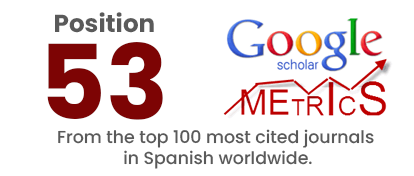Professional self-determination as a quality criterion of competitive specialists training
DOI:
https://doi.org/10.36097/rsan.v1i30.897Keywords:
specialist profession, professional self-determination and its levels, competence approachAbstract
In accordance with the competence-based approach, a specialist developing professionally should be able to create something new in his profession, even in a small way. Professional self-determination is considered by researchers both as a process and as a result of professional development, each stage of which is characterized by a different content. The solution to the problem of professional self-determination of the individual is carried out in two dimensions: theoretical-oriented and practice-oriented. The work of the individual on professional-determination and research activities, like any other holistic activity, has the same organizational and psychological characteristics and methodological foundations. Recently, the interest of professional educational organizations to the problem of self-determination of students has increased due to the fact that timely and reasonable choice of profession, training specialty is a guarantee of both personal success of future professionals and sustainable development of society. The main characteristics of self-determination as a psychological and pedagogical phenomenon are: belonging to the subject, processuality, consciousness, independence. Self-determination is a conscious, independent, purposeful process of identification and disclosure of the essential forces of personality, ways of development and realization of its capabilities and abilities, carried out in interaction with other people. Analysis of the essence of professional self-determination from the standpoint of philosophy, psychology, sociology, acmeology, pedagogy confirms the complexity and diversity of this phenomenon, the need for a systematic approach to its study.
Downloads
References
Abdulatipovа E.A., Tsakhaeva A.A. (2017). The logic of designing an evaluation system for the acquisition of professional skills of future education psychologists. Modern Science Success. Volume 2. Issue 4. Р. 18 – 22.
Abuzjarova M.I. (2017). Tendencies, law of development and economic content of innovative entrepreneurship. Modern Economy Success. №. 1. P. 43-50.
Badakhovа I.T. (2017). Formation of Professionally Significant Qualities of Future Managers in the Training Process Forming. Modern Scientist. №7. P. 81 – 84.
Borovikova T.V. (2017). Methodological bases of formation of the intellectual potential of territories in the conditions of innovative economy. Modern Economy Success. №. 6. P. 46-49.
Borisova I.V., Novoseltseva V.N. (2016). Structure features of intelligence of students of different types classe. Modern Science Success. Volume 3. Issue 2. P. 124 – 130.
Borisova M.V., Musokhranov A.Yu., Sidorova N.A. (2018). Use of fitness directions elements on physical education classes and their psychomatic impact on students of the special medical group. Modern Scientist. Issue 1. P. 6 – 9.
Gasanova P.G., Daudova D.M, Kabieva R.A., Tsahaeva A.A. (2017). Moral qualities of businessmen in public consciousness. Modern Scientist. Volume 1. Issue 1. P. 209 – 211.
Gadzaov A.F., Dzerzhinskaya M.R. (2018). Mathematical methods of analysis of the periodic components of economic processes. Modern Economy Success. No. 1. P. 14-18.
Daudova D.M., Aminova D.K., Tsahaeva A.A. (2016). Empathy as a psychological mechanism of self-development of future psychologist. Success of Modern Science and Education. Volume 3. Issue 4. S. 49 – 51.
Bolotin I.S., Mikhaylov A.A., Sorokina N.D. (2017). Functional literacy of students in terms of introduction of information technologies (on the example of research among the students of MAI). Modern Scientist. Vol. 1. №1. – P. 160–163.
Zulaeva Ts. A., Maslova S.V., Appaeva Ya.B. (2018). Adaptation of students in the process of continuous educational activity. Success Modern Sciences and Education. Issue 1. Р. 5 – 9.
Ilkevich T.G., Medvedkova N.I. (2017). Sports and recreational activities in the art university as a means of primary prevention of occupational diseases of students –artists. Modern Science Success. Volume 2. Issue 4. P. 29 – 33.
Kuznetsov A.A., Ignatyeva T.A., Kuznetsov A.O. (2018). Strategy and key elements of competitiveness. Modern Economy Success. No. 1. P. 25-29.
Sergeevа M.G., Trubakova D.I. (2017). Teacher’s Reflection Formation as Factor of Effectiveness Children’s Social Intelligence Forming. Modern Scientist. Issue 7. P. 62 – 64.
Morozov I.D., Sapozhnick P.A., Pavlov S.M., Rodionova I.P. (2018). Tolerant approach in intercultural communication of students youth. Success Modern Sciences and Education. Issue 1. Р. 34 – 36.
Zare, H., & Rajaeepur, S. (2013). THE TASKS OF SOCIAL WORKERS WORKING WITH CHILDREN OF DIVORCE: A REVIEW. UCT Journal of Management and Accounting Studies, 1(4).
Tsahaeva A.A., Aminova D.K., Aminov U.K. (2016). Patternsize value of the constructs of personality as a subject of scientific reflection. Success of Modern Science and Education. Volume 3. Issue 4. P. 16 – 20.
Tsahaeva A.A., Aminov U.K., Aminova D.K. (2017). Driving forces of the development of adaptive behavior of personality: methodological considerations. Modern Scientist. № 8. P. 44 – 47.
Gadzaov A.F., Dzerzhinskaya M.R. (2018). Mathematical methods of analysis of the periodic components of economic processes. Modern Economy Success. Issue 1. P. 14 – 18.
Yazovskikh E.V. (2018). Employment of graduates as one of the efficient activity indicators of the higher educational establishment, ural federal university is taken as an example processes. Modern Economy Success. Issue 1. P. 33 – 37.
Pozharskaya E.L., Deberdeeva N.A. (2017). Psychological and Pedagogical Support in Professional Self-Determination of Youth. Modern Scientist. Issue 7. P. 106 – 109.
Golub I.B., Simdyankina E.K., Pryakhina E.O. (2017). National Traditions in the System of Training of Future Teacher as a Socio-Historical Problem. Success of Modern Sciences and Education. Issue 10. P. 52 – 57.
Trifonova I.S. (2017). Innovative and Technological Development of Russia in Education Activity. Success of Modern Sciences and Education. Issue 8. P. 140 – 142.
Enygin D.V., Midova V.O., Maslova E.G. (2017). The Concept of Multicultural Educational Environment. Modern Scientist. Issue 7. P. 136 – 139.
Kryazheva E.V., Vinogradskaya M.Yu. (2017). Theoretical Approaches to the Development of Creative Technical Thinking of University Students. Success of Modern Sciences and Education. Issue 10. P. 97 – 101.
Taova A.Kh. (2017). Formation of Applied Skills, Abilities and Development of Psychophysical Quality in Professional Activity. Success of Modern Sciences and Education. Issue 8. P. 88 – 90.


















